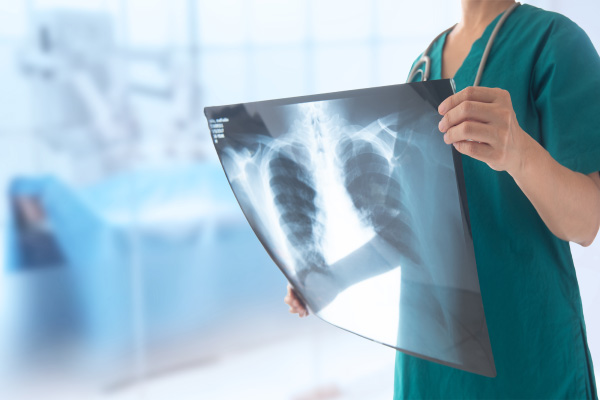Level: 3 | Duration: 1 Year | Start Date: September
Online Qualification: You will need to travel to college for the induction sessions at the start of the course and also any drop-in progress/support meetings throughout the course. They are NOT fully distance learning courses. See below for more information.
Begin your journey to a successful career in Radiography at Riverside College.
- Flexible online learning with the added security of face-to-face induction and weekly support sessions when needed
- Explore the roles and responsibilities of healthcare professionals
- A qualification which is equivalent to 3 A-Levels for entry to university
- Radiography Access course assessed through end-of-unit assignments with no exams!
Radiography is a extremely important and is widely used in healthcare to detect abnormalities or issues relating to the human body, from bones to organs. Trained professionals will take and diagnose these vital images and you can start your career by studying the Access to HE Diploma (Radiography).
You will study core scientific and medical principles essential to working with radiation and hazardous materials safely, as well as how to provide support for the patients in your care.
The purpose of this course is to not only provide you with foundational knowledge about radiography, but also enhance your study skills to help you navigate through your degree.
Entry Requirements
- You will need GCSE English at Grade A-C (9-4) or equivalent (Level 2 Functional Skills) and GCSE Maths at Grade A-C (9-4) or equivalent (Level 2 Functional Skills) - you will need to provide us with written evidence from your chosen Universities that they will accept Functional Skills for your year of entry to University
- Some Universities will only accept GCSEs to meet entry requirements. They will also require you to have additional GCSEs at Grade A-C (4-9) for some courses, including a science for some pathways
- As the course is fully online you must have strong ICT skills to enable you to cope with the demands of the course
- You will also need to have your own laptop
University Entry Criteria: Each university will set its own admission criteria. You will need to check the entry requirements of your chosen university and course.
The specialist Access tutors alongside the ACE/ Careers team at Riverside College can support you with your application to university. You are likely to require:
- A certain number of credits passed with a merit or a distinction grade* (see the Modules tab for the individual modules included in this course)
- GCSE Grade C/4 or above in Maths and English alongside literacy and numeracy assessments provided by the university
- A face-to-face interview at the university
- Course-related work placements or work experience
Course Fees:
Fee: £3,384
You can apply for an ADVANCED LEARNER LOAN; the Loan eligibility does not depend on your income and there are no credit checks. The loan will cover the full cost of your Access Course, this will be written off when you complete your degree – saving you up to £9,000 in fees and not using any of your Student Loans allowance.Assessments:
There are no exams on the Access to HE course, you will be assessed via academic reports, essays, case study analysis, illustrated mind map, illustrated report, worksheet, journal article, portfolio, academic poster, presentation (video and audio recording), revision guide, series of questions, academic writing skills tasks.Why choose Riverside College:
- Flexible online learning for your Access to Higher Education qualifications with the support of weekly face-to-face drop-in support sessions when and if needed*
- Initial face-to-face induction to fully prepare you for your studies
- Up to six hours per week of drop-in support sessions with tutors when needed (Daytime and Evening sessions available)
- Interactive online sessions (Assessed and marked online).
- Access college facilities including the Learning Resource Centre, Study Rooms with PCs and printing, UCAS support, and bursaries
- Streamline your qualification to fit into your spare time giving you the option to complete the Access to Higher Education faster.
- Social groups offering tutor and peer support and encouragement.
- Ofsted Outstanding Access teaching and support teams
- Dedicated specialist Access teachers with over 10 years' experience in successfully supporting adults to progress onto degrees
- Study for FREE, saving up to £9,000 in fees AND you won’t use up any of your Student Loans allowance. See the ADVANCED LEARNER LOAN for more details.
Developing Your Career
Please note - After you complete your Access qualification and degree you will need to be registered with the Health and Care Professions Council to work as a Radiographer. There are different routes you can pursue, if you become a radiographer at practitioner level, then you could become a therapeutic radiographer, who focuses on planning and administering radiotherapy treatment. Alternatively, you may want to work as a diagnostic radiographer, who takes images to diagnose illnesses and injuries. If you go down this route, then you will likely work with the following methods:
- Angiography
- Computed tomography
- Fluoroscopy
- MRI
- X-ray
- Ultrasound
Unit 1: Academic Writing Skills
On completion of this unit you will:- Be able to write with relevance in responding to an academic task
- Know how to interpret and discuss ideas and issues in responding to a set, academic writing task
- Be able to summarise for academic purposes, selecting key points, information, or central ideas
Unit 2: Preparing a Written Assignment
On completion of this unit you will:- Understand how to use key information sources
- Understand why sources are acknowledged and referenced
- Understand a range of reading strategies
- Understand note-making methods
- Understand how to plan, draft and produce a written assignment
Unit 3: Cell Biology
On completion of this unit you will:- Understand the structure and organisation of cells
- Understand cellular metabolism
- Understand how cells grow and divide
Unit 4: Electromagnetic Spectrum
On completion of this unit you will:- Understand the principles and types of electromagnetic waves
- Understand the properties of visible and ultraviolet light
- Understand the properties of microwaves and infrared
- Understand the biohazards of ultraviolet and infrared radiation
- Understand the hazards and uses of X- Rays in medical applications
Unit 5: Atomic Structure
On completion of this unit you will:- Understand protons, neutrons and electrons in terms of their relative charges and masses
- Understand the distribution of protons, neutrons and electrons in an atom given its Atomic number and Mass number, including some isotopes
- Understand the number and relative energies of the s, p and d orbitals for the principal quantum numbers and know the shapes of s, p and d orbitals
- Understand how ionisation energies of elements relate to reactivity
- Understand the position of elements within the Periodic Table from ionisation energy data
Unit 6: The Human Muscular and Skeletal System
On completion of this unit you will:- Understand anatomy, organisation and function of the muscular system
- Understand anatomy, organisation and function of the skeletal system
- Understand how the muscular and skeletal system interact in locomotion
Unit 7: Trigonometry
On completion of this unit you will:- Be able to use trigonometrical functions
- Be able to use trigonometry to solve equations and problems
- Be able to use trigonometric functions and identifies in the context of proofs
- Be able to produce trigonometric graphs
Unit 8: Medical Physics
On completion of this unit you will:- Understand atomic structure
- Understand the nature of alpha, beta and gamma radiation, and X-rays
- Understand the main uses of ionising radiation in monitoring and treatment
- Understand how radio isotopes are used in healthcare
- Understand the health applications of a selected part of electromagnetic spectrum
- Understand how ultrasound is used in healthcare
Unit 9: The Roles and Responsibilities of Health Care Professionals
On completion of this unit you will:- Understand the changes to the roles and responsibilities of a chosen healthcare professional
- Understand the role of professional/regulatory bodies for a healthcare professional, for example HCPC and Nursing and Midwifery Council
- Understand the current multidisciplinary approach to healthcare
Unit 10: Human Disease and Prevention
On completion of this unit you will:- Understand the categories and causes of disease
- Understand the epidemiology of disease
- Understand preventative measures for a chosen disease or condition
Unit 11: Periodic Table
On completion of this unit you will:- Understand the Periodic Table
- Understand periodicity in the elements of Period 3
- Understand ionisation energy
- Understand oxidation and reduction
- Understand the reactions of the Group 2 metals
- Understand the Group 7 elements
Unit 12: Radioactivity
On completion of this unit you will:- Understand the main types of ionising radiations and their measurement
- Understand radioactive decay
- Understand the practical applications of ionising radiation and radioisotopes and their use with acceptable safety
Unit 13: Atomic Structure & Bonding
On completion of this unit you will:- Understand the structure of the atom
- Understand electronic structures
- Understand the formation of ionic bonds
- Understand the formation of covalent bonds
Unit 14: Physics
On completion of this unit you will:- Understand the connection between force and motion and be able to use Newton's Laws of Motion
- Understand conservation of energy and momentum
- Understand the concepts and vocabulary of wave motion
- Understand the straight-line model of the behaviour of light
- Understand the behaviour and properties of magnets and magnetic fields, electric charge and electric current
Unit 15: Chemical Bonding and Structure
On completion of this unit you will:- Understand electronic configuration using s, p, d notation
- Understand ionic, covalent and dative covalent bonding
- Understand polarisation and intermolecular forces
- Understand the relationship between structure and properties of molecules
- Understand electron pair repulsion theory
- Understand the nature of organic chemicals
Unit 16: Statistical Research
On completion of this unit you will:- Be able to plan an investigation which allows for the collection of statistical data
- Be able to carry out an investigation
- Be able to interpret and analyse results
- Be able to evaluate an investigation
Unit 17: Optics & Sound
On completion of this unit you will:- Understand the Laws of Reflection
- Understand the Laws of Refraction
- Understand the action of convex and concave lenses
- Understand the simple optics of the eye
- Understand the nature of transverse and longitudinal wave motions
- Understand how the ear detects sound waves

Course Features
- Lecture 0
- Quiz 0
- Duration 10 weeks
- Skill level All levels
- Students 0
- Assessments Yes






